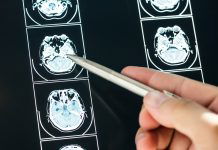
Smoking is widely known for its harmful effects on the lungs and heart, but its impact on the brain, particularly in increasing the risk of stroke, is equally significant and devastating.
A stroke occurs when the blood supply to part of the brain is interrupted, preventing brain tissue from getting oxygen and nutrients. This can result in the death of brain cells within minutes, leading to permanent neurological damage, long-term disability, or even death.
The link between smoking and increased stroke risk is well-established and robust across numerous studies. Smokers are twice as likely to have a stroke compared to non-smokers.
This heightened risk comes from the way smoking affects the cardiovascular system and blood health.
Firstly, smoking contributes to the formation of plaques in the arteries—known as atherosclerosis—which narrows and hardens the arteries, making them less flexible.
This condition can reduce the blood flow to the brain, leading to an ischemic stroke, the most common type of stroke, caused by blocked or narrowed arteries.
Smoking also increases the likelihood of developing blood clots, which can directly cause an ischemic stroke by blocking a brain artery.
Moreover, smoking affects the integrity of blood vessels, making them more prone to rupture. This is particularly dangerous in the brain, where such an event can lead to a hemorrhagic stroke, caused by bleeding either within the brain or between the brain and the skull.
The chemicals in tobacco smoke are major culprits in damaging the cardiovascular system. Nicotine, for example, elevates blood pressure and heart rate, putting additional strain on the vascular system including the cerebral arteries.
Other toxic substances in smoke can damage the lining of the artery walls and make the blood more likely to clot, which magnifies the risk of stroke.
The impact of smoking on stroke risk is dose-dependent, meaning the more you smoke, the higher your risk of stroke. However, even light or occasional smoking can increase the risk. There is no safe level of smoking when it comes to stroke risk.
Interestingly, the effects of smoking do not only affect the smoker. Secondhand smoke, also known as passive smoke, can also increase a non-smoker’s risk of stroke.
Studies have shown that exposure to secondhand smoke at home or work increases a non-smoker’s risk of having a stroke by about 20-30%.
The good news is that quitting smoking can significantly reduce the risk of stroke. Studies have shown that former smokers can eventually attain a stroke risk level comparable to that of people who have never smoked, although it might take several years after quitting to reach this lower risk level.
Quitting smoking is challenging but brings immediate health benefits. Within a few minutes of smoking the last cigarette, the body begins to recover.
Blood pressure and heart rate drop, and circulation begins to improve, which decreases the risk of a stroke almost immediately. Over time, the risk of stroke and other cardiovascular conditions continues to decrease.
In conclusion, smoking is a major modifiable risk factor for stroke. The evidence is clear that quitting smoking dramatically reduces the risk of both ischemic and hemorrhagic strokes.
For those looking to make a positive change in their health, quitting smoking offers one of the most significant protections against stroke, alongside a plethora of other health benefits.
For anyone needing help to quit smoking, various resources are available, including medications, therapy, and support groups designed to increase the chances of successfully quitting.
If you care about smoking, please read studies about smoking may increase heart disease risk by 200% and e-cigarette smoke may cause lung cancer and bladder disease.
For more information about brain health, please see recent studies about the cause of weight gain after smoking cessation, and results showing smoking may cause white scars on the brain.
Copyright © 2024 Knowridge Science Report. All rights reserved.



